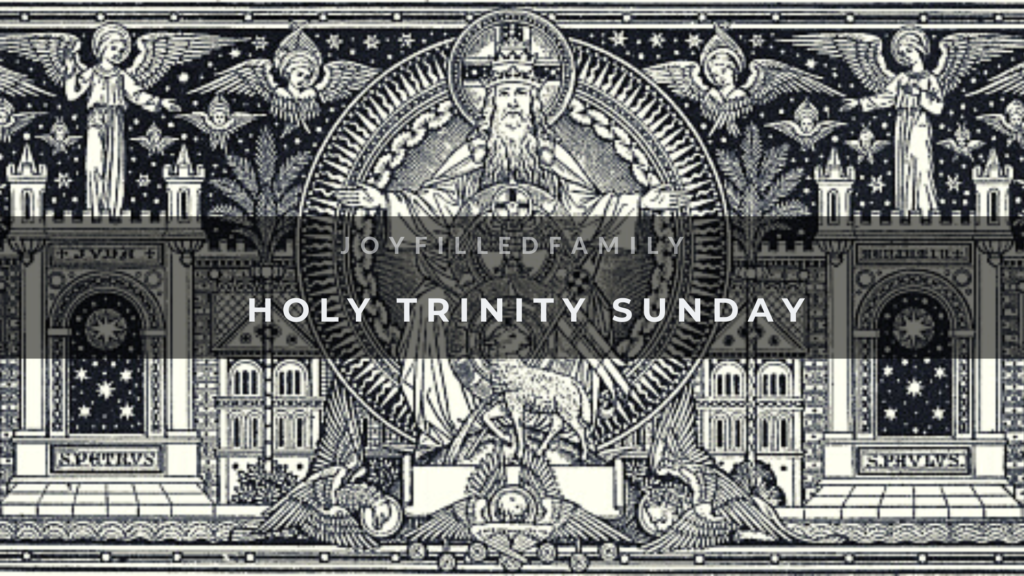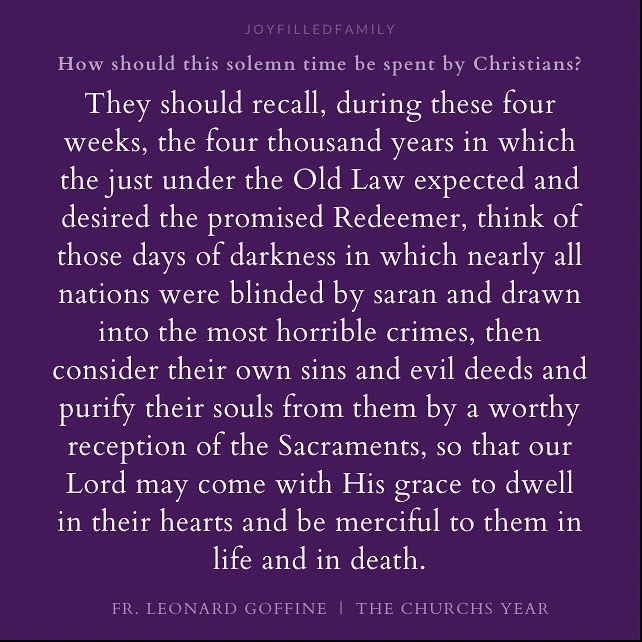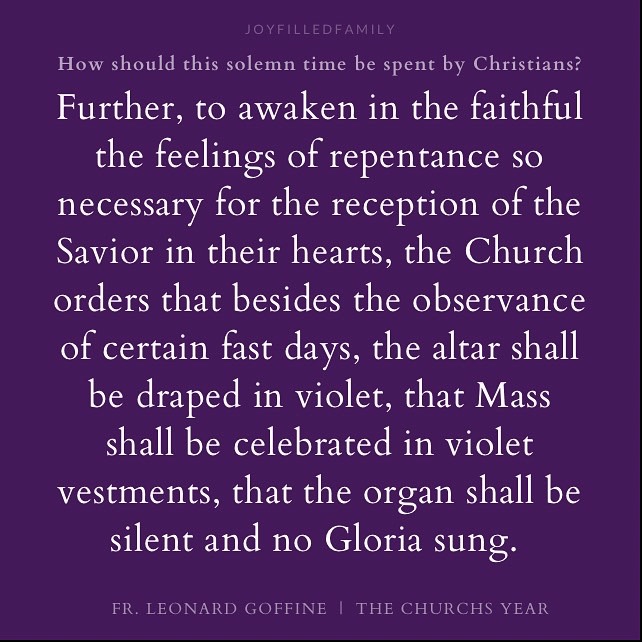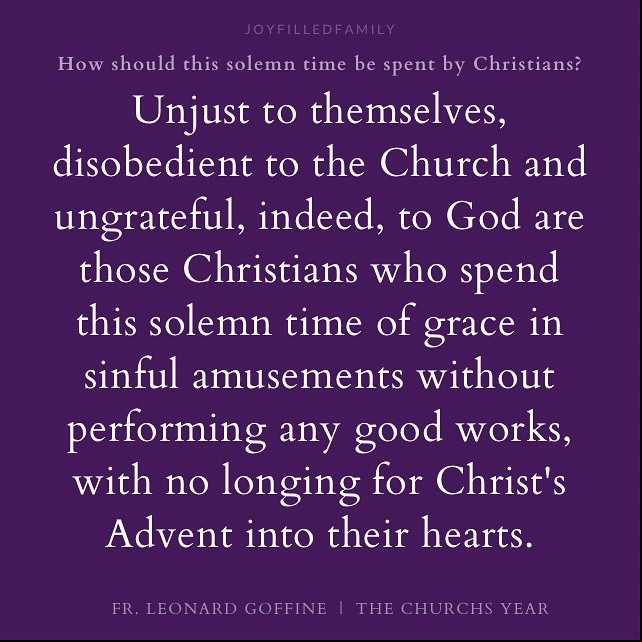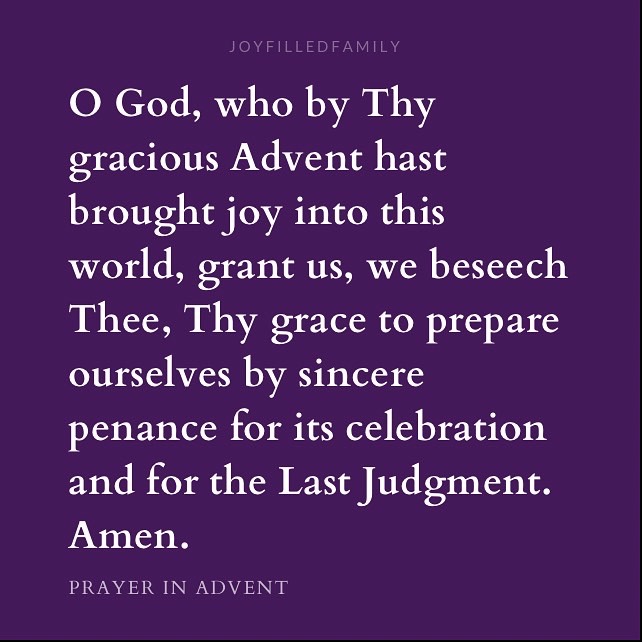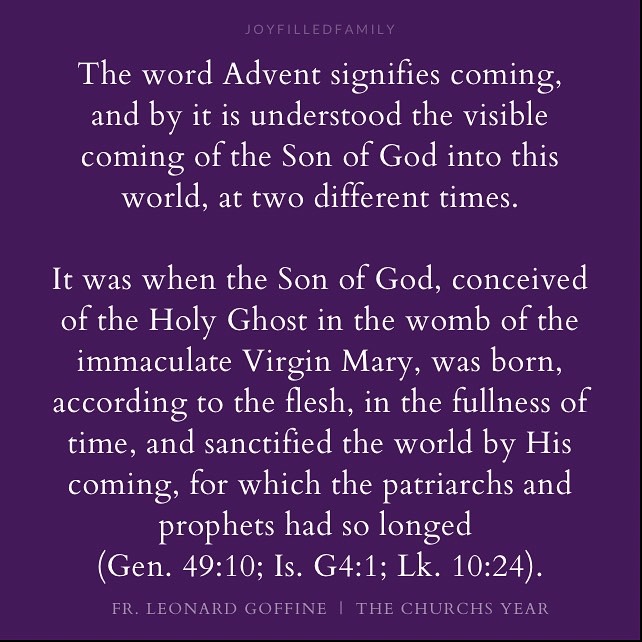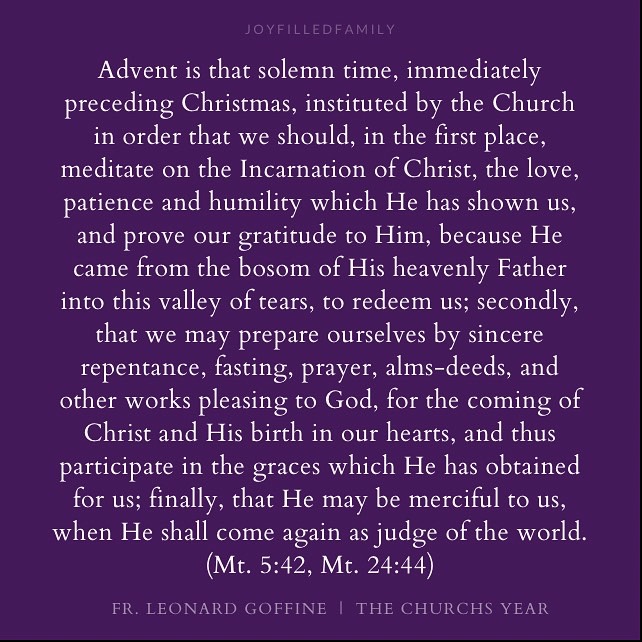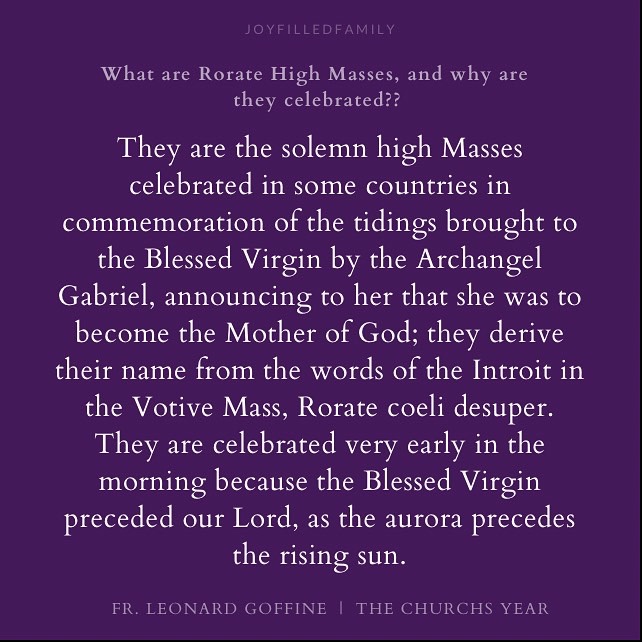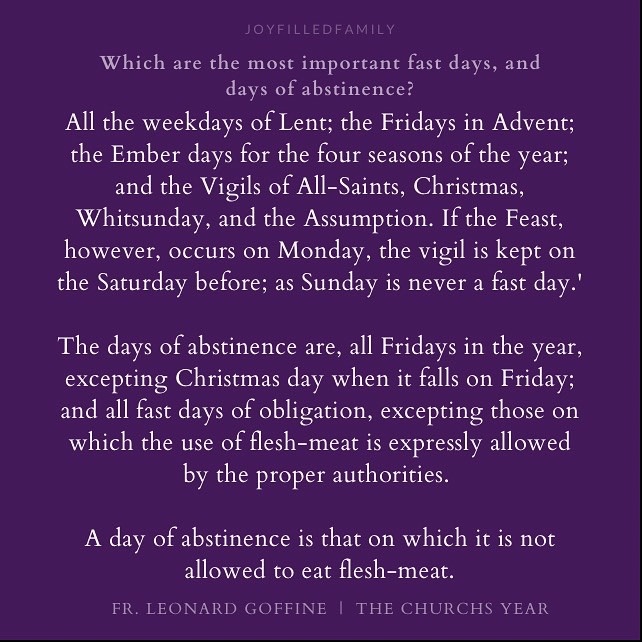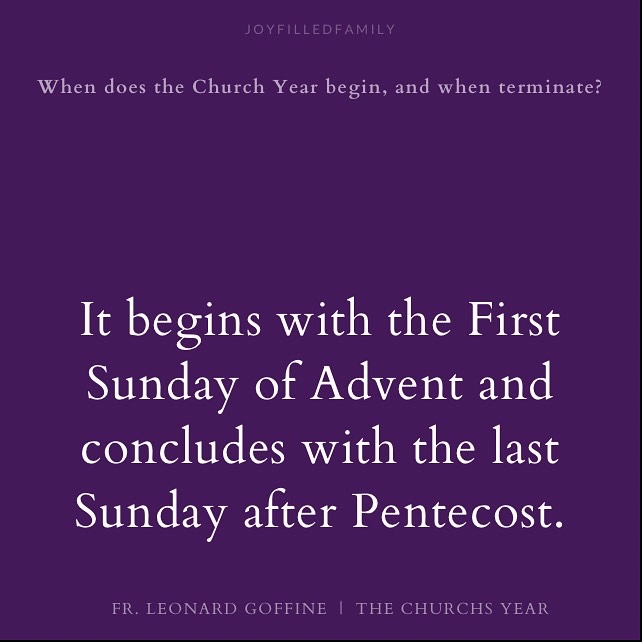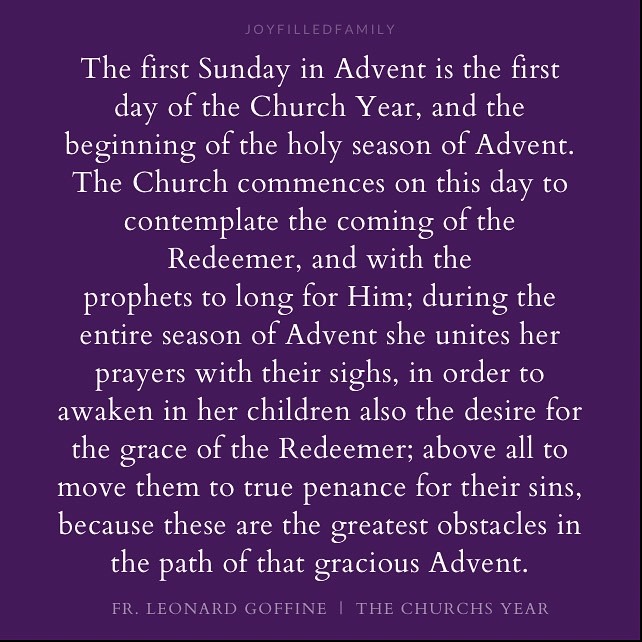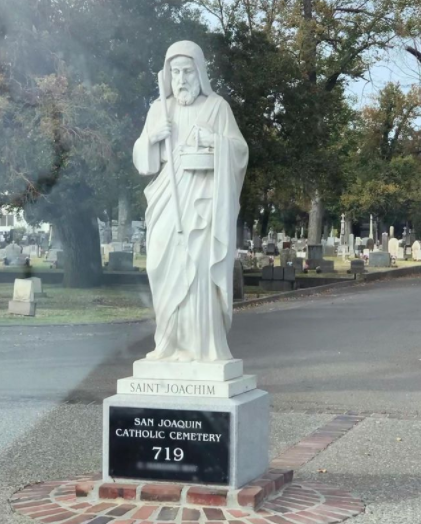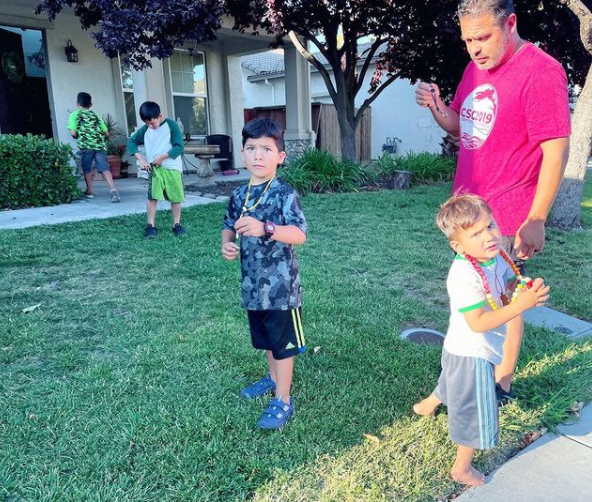“Baptising them in the name of the Father and of the Son and of the Holy Ghost” (Matt., 28:19)
Archbishop Lefebvre offers the follow sermon for todays feast.
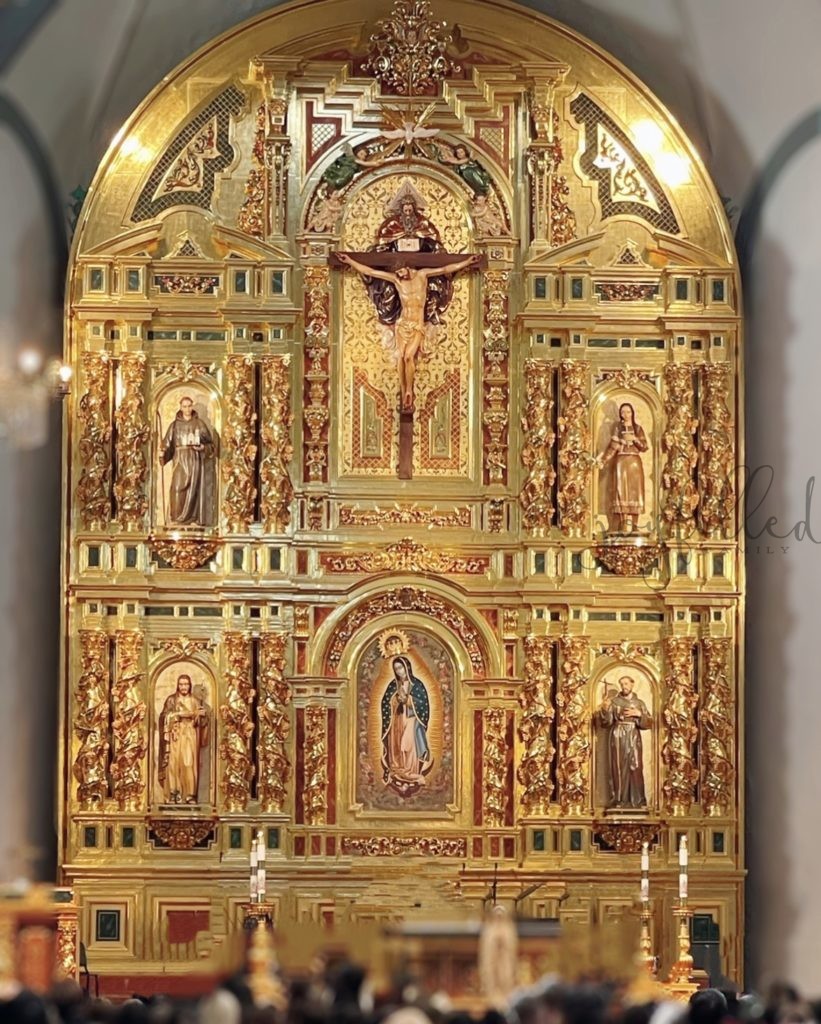
“They can occupy our churches, but they are outside the true Faith.“ #stathanasius
On this day the Catholic Church observes a special feast in honour of the most profound mystery of our faith, the doctrine of the Holy Trinity.
According to this doctrine, there is only one God, but in God there are three distinct Persons, known as the Father, the Son, and the Holy Spirit. In theological language this means that God is one in nature, but three in Persons.
We make no claim that we can give a clear and adequate explanation of this doctrine. It is a mystery-that is, a truth which we accept on the authority of God, but which we cannot understand. We can, indeed, understand that there is only one God. Our reason tells us that it would be a contradiction in terms to say that there is more than one God. The very idea of God indicates absolute supremacy, the possession of all perfections. If there were two Gods, neither could be absolutely perfect because neither would possess the perfections of the other.
But, how this one divine nature can be possessed by three Persons, each distinct from the other, yet each identical with the divinity is entirely above our understanding. However, this is no argument against the reasonableness of believing this doctrine. We accept the statements of our fellowmen on matters that surpass our understanding when these persons are intelligent and truthful–for example, the statements of the atomic scientists. Why then should we not accept the statement of the all-knowing and all-truthful God when He tells us that He is one God in three distinct Persons?
The doctrine of the Holy Trinity is the very foundation of Christian belief. In the early Church there were many misunderstandings about this sublime doctrine, so that most of the heresies of the first centuries were centred about this mystery. But the infallible Church pointed out the way to the truth, and hence today in our Catholic theology we have a profound and consistent teaching regarding this doctrine, enabling us to answer all the objections that are raised against it, even though we make no claim to give a positive understanding of its full significance. Catholics should try to familiarise themselves with at least a general knowledge of the Church’s theological doctrine on the Holy Trinity.

Practical Application
Whenever you make the sign of the Cross, remember you are making an act of faith in the most sublime Christian doctrine. Try to be recollected, and accompany the words with an interior act of faith that there is one God in three Divine Persons.
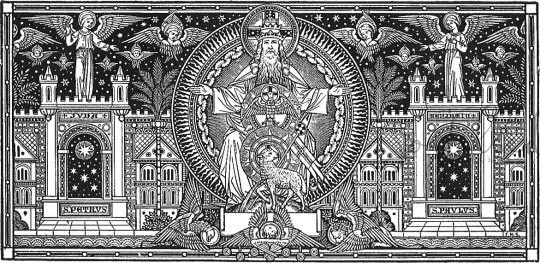
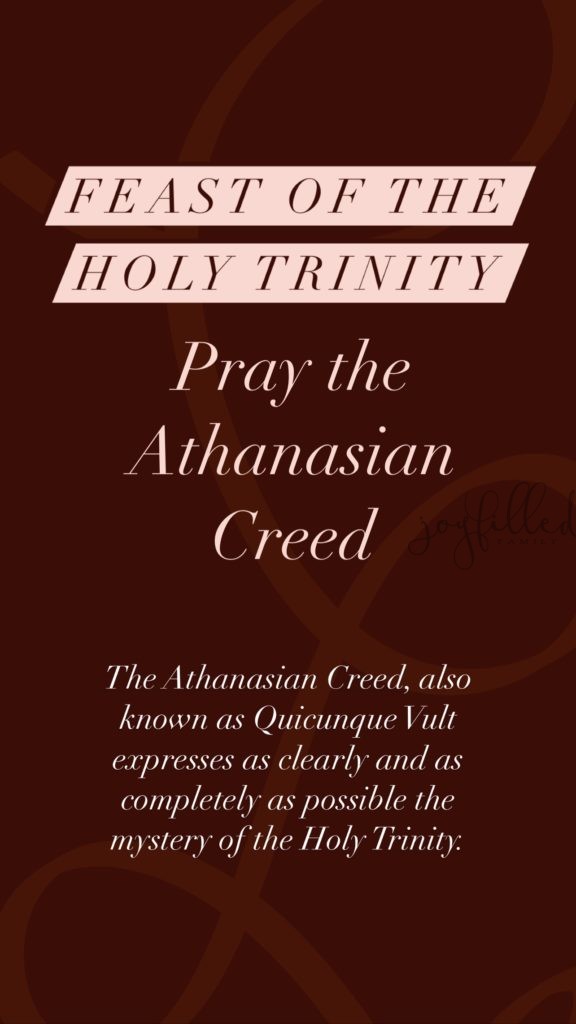
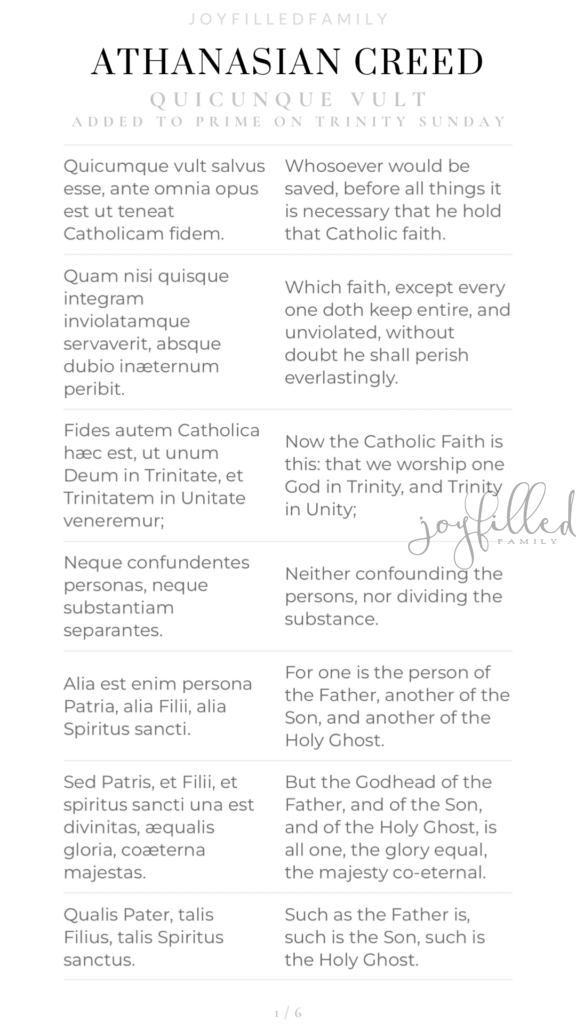
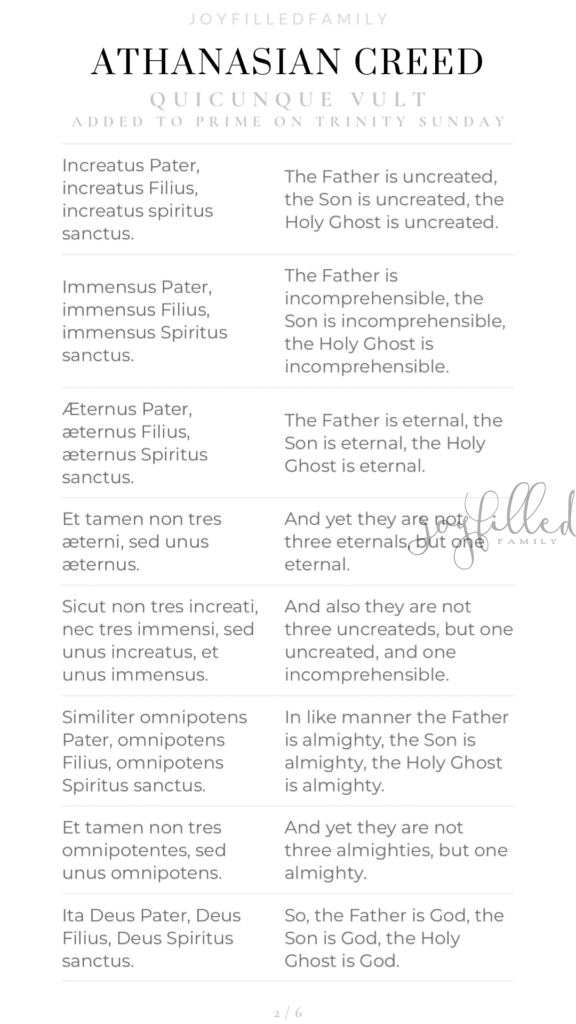
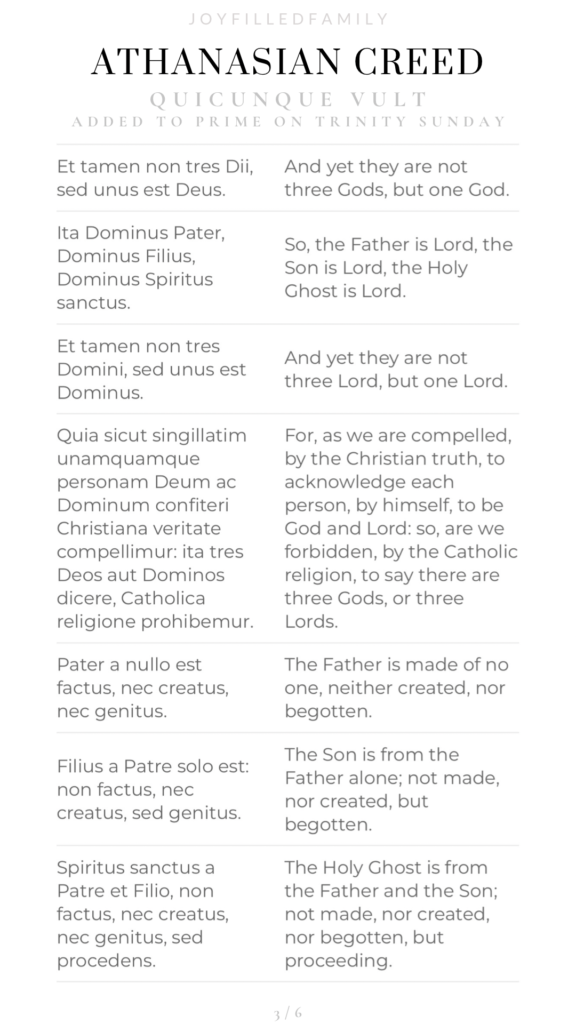
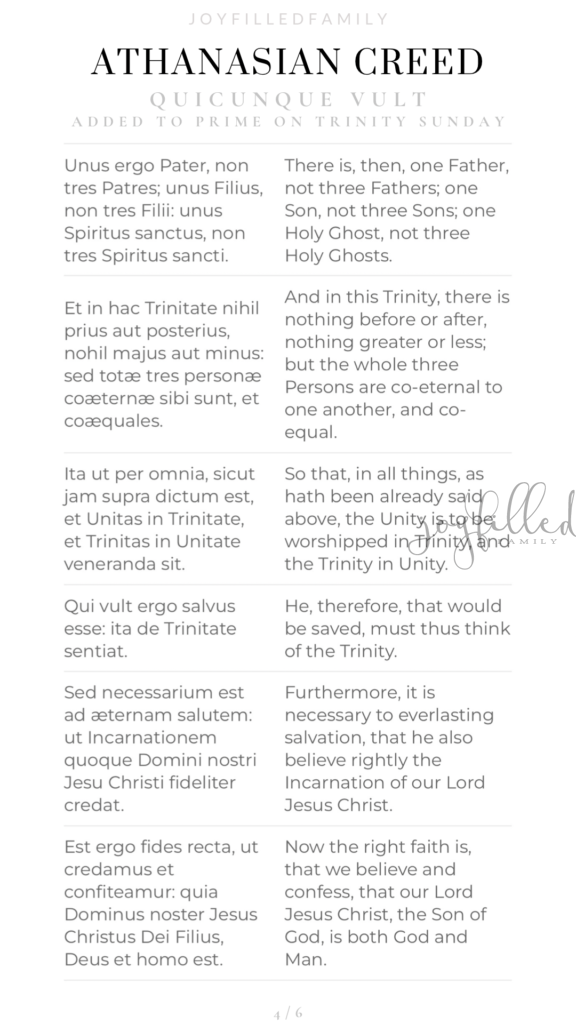
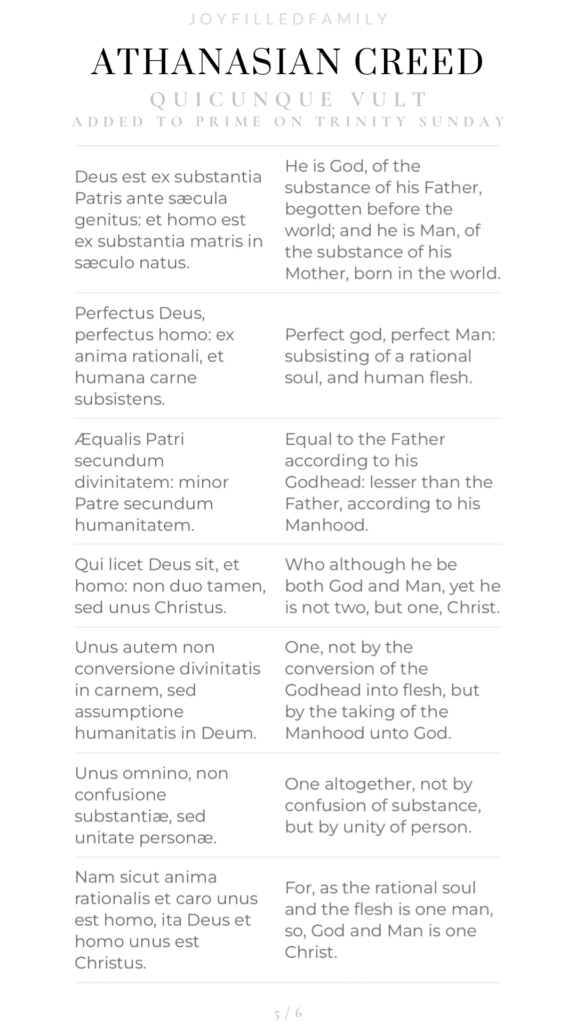
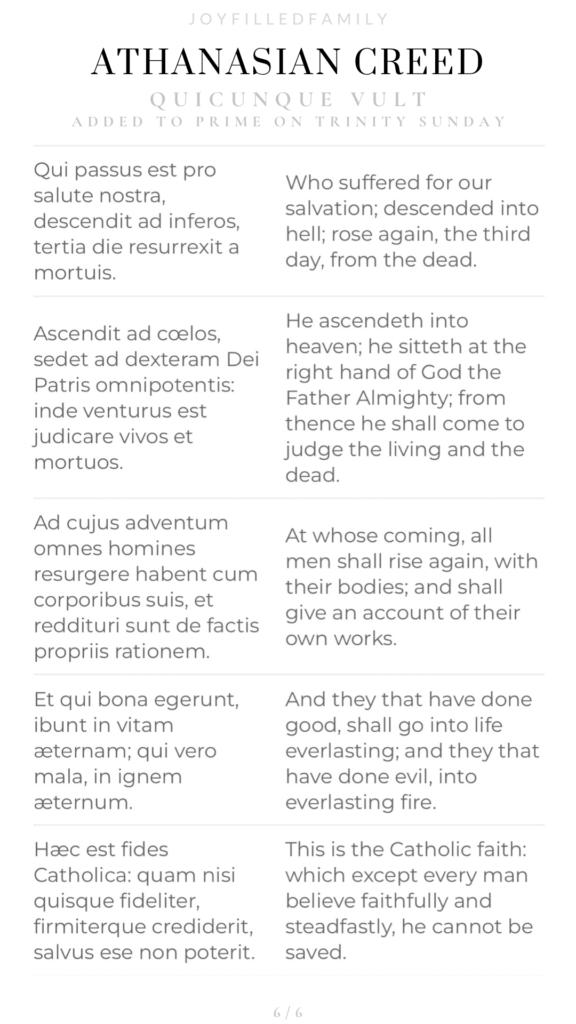

We pray the Athanasian Creed on this Trinity Sunday. See my stories for the full Creed.
On today’s feast, I also invite you to read the Letter of St. Athanasius to his flock (included below).
St. Athanasius is often referred to as the Champion of Orthodoxy, he was undoubtedly one of the most courageous defenders of the Faith in the entire history of the Church.
He is a saint for our times!
This letter of his could have been written, in its entirety, yesterday.
➕
May God console you! …What saddens you …is the fact that others have occupied the churches by violence, while during this time you are on the outside. It is a fact that they have the premises─but you have the apostolic Faith.
They can occupy our churches, but they are outside the true Faith.
You remain outside the places of worship, but the Faith dwells within you. Let us consider: what is more important, the place or the Faith? The true Faith, obviously. Who has lost and who has won in this struggle-the one who keeps the premises or the one who keeps the Faith?
True, the premises are good when the apostolic Faith is preached there; they are holy if everything takes place there in a holy way …You are the ones who are happy: you who remain within the church by your faith, who hold firmly to the foundations of the Faith which has come down to you from apostolic Tradition. And if an execrable jealousy has tried to shake it on a number of occasions, it has not succeeded. They are the ones who have broken away from it in the present crisis.
No one, ever, will prevail against your faith, beloved brothers. And we believe that God will give us our churches back some day.
Thus, the more violently they try to occupy the places of worship, the more they separate themselves from the Church. They claim that they represent the Church; but in reality, they are the ones who are expelling themselves from it and going astray.
Even if Catholics faithful to Tradition are reduced to a handful, they are the ones who are the true Church of Jesus Christ. ➕
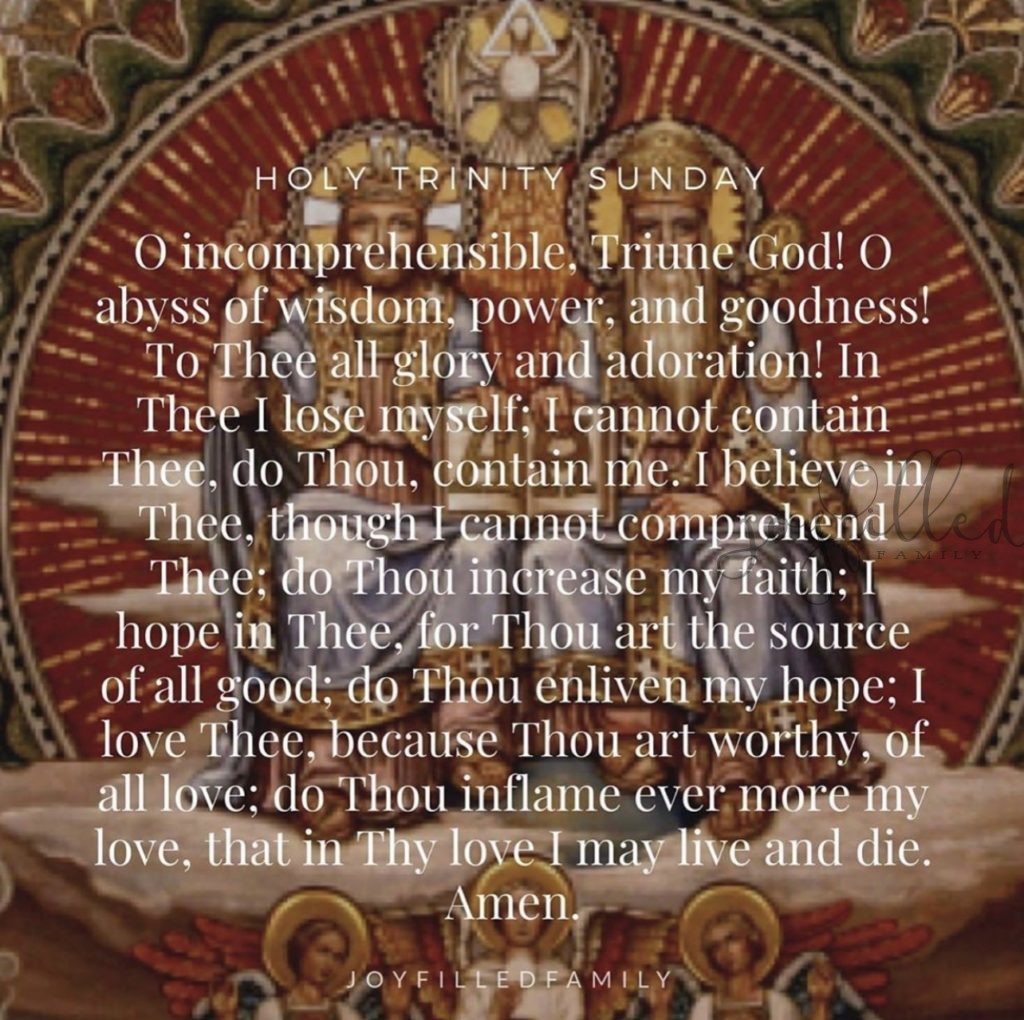
Instruction on the Feast of the Holy Trinity from Fr. Leonard Goffine.
This festival is celebrated on the Sunday after Pentecost, because as soon as the apostles were instructed and consoled by the Holy Ghost, they began to preach openly that which Christ had taught them.
Why do we celebrate this festival?
That we may openly profess our faith in the doctrine of the Holy Trinity, which is the first of Christian truths, the foundation of the Christian religion, and the most sublime of all mysteries; and that we may render thanks, to the Father for having created us, to the Son for having redeemed us, and to the Holy Ghost for having sanctified us.
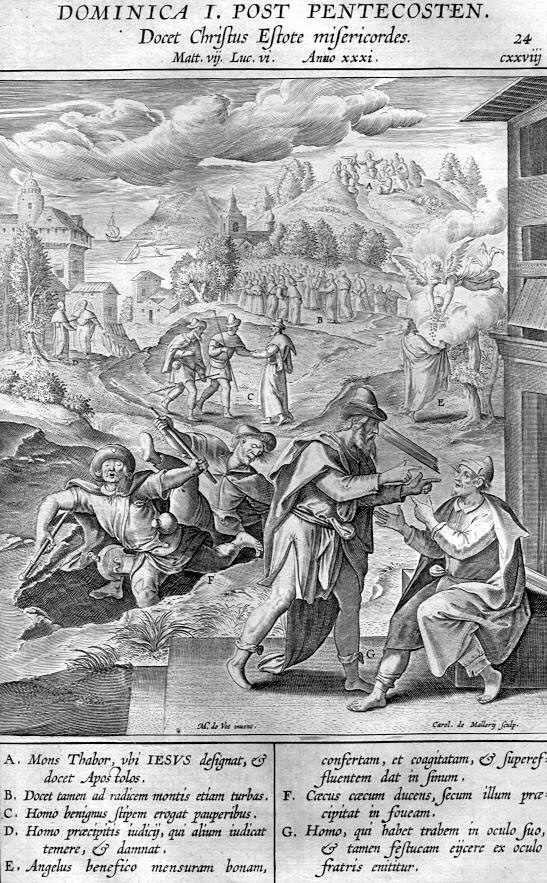
In praise and honor of the most Holy Trinity, the Church sings at the Introit of this day’s Mass:
INTROIT Blessed be the holy Trinity and undivided Unity: we will give glory to him, because he hath shown his mercy to us: (Tob. 12) O Lord, our Lord, how wonderful is thy name in all the earth! (Ps. 8:1) Glory be to the Father, etc.
GOSPEL (Matt. 28:18-20) At that time Jesus said to His disciples: All power is given to me in heaven and in earth. Going, therefore; teach ye all nations, baptizing them in the name of the Father, and of the Son, and of the Holy Ghost; teaching them to observe all things whatsoever I have commanded you. And behold, I am with you all days, even to the consummation of the world.
EXPLANATION Christ being God had from all eternity the same power that His Father had; being man, He had this same power by the union of His divinity with His humanity, and on account of the infinite merits of His passion. In virtue of this power, He said to His apostles, before the ascension, that, as His Heavenly Father had sent Him, even so He sent them to all nations, without exception, to teach all that He had commanded, and to receive them, by means of baptism, into the Church; at the same time He promised to be with them to the end of the world, that is, that He would console them in suffering, strengthen them in persecution, preserve them from error, and always protect them and their successors, the bishops and priests, even unto the consummation of the world.
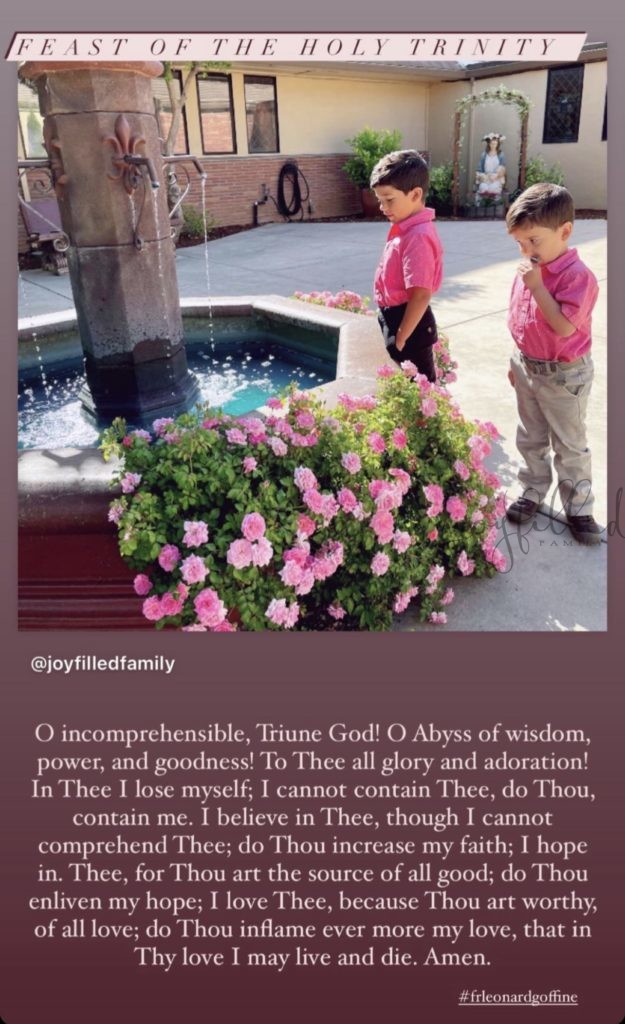
FEAST OF THE HOLY TRINITY
This festival is celebrated on the Sunday after Pentecost, because as soon as the apostles were instructed and consoled by the Holy Ghost, they began to preach openly that which Christ had taught them.
The fundamental truth on which everything in the Christian religion rests, is the dogma of the Holy Trinity from whom all comes (Epistle ROM XI. 33-36 ), and to whom all baptized in His name must return (Gospel Matt. XXVIII. 18-20).
In the course of the cycle, having called to our minds in order, God the Father, Author of creation, God the Son, Author of redemption, and God the Holy Ghost, Author of our sanctification, the Church today, before all else, recapitulates the great mystery by which we acknowledge and adore the Unity of Nature and Trinity of Persons in almighty God (Collect).
The dogma of the Holy Trinity is affirmed, in the liturgy, on every hand. It is in the Name of the Father and of the Son and of the Holy Ghost that we begin and end the Mass and Divine Office, and that we confer the Sacraments. All the Psalms end with the Gloria, the Hymns with the Doxology, and the Prayers by a conclusion in honor of the three Divine Persons. Twice during the Mass we are reminded that it is to the Holy Trinity that the Mass is being offered.
A votive Mass in honor of the Holy Trinity was composed in the seventh century, and in the eleventh century the Abbey of Cluny established the custom of using it for a feast of the Holy Trinity on this Sunday. Bishop Stephen of Liege composed its office in the tenth century. The feast was officially adopted by the Roman liturgy in 1334 at Avignon by Pope John XXII and was later promoted in rank by St. Pius X.
That we may ever be armed against all adversity, let us today, with the liturgy, make our solemn profession of faith in the Holy and Eternal Trinity and His indivisible Unity.
– Dom Gaspar Lefebvre OSB, 1945
